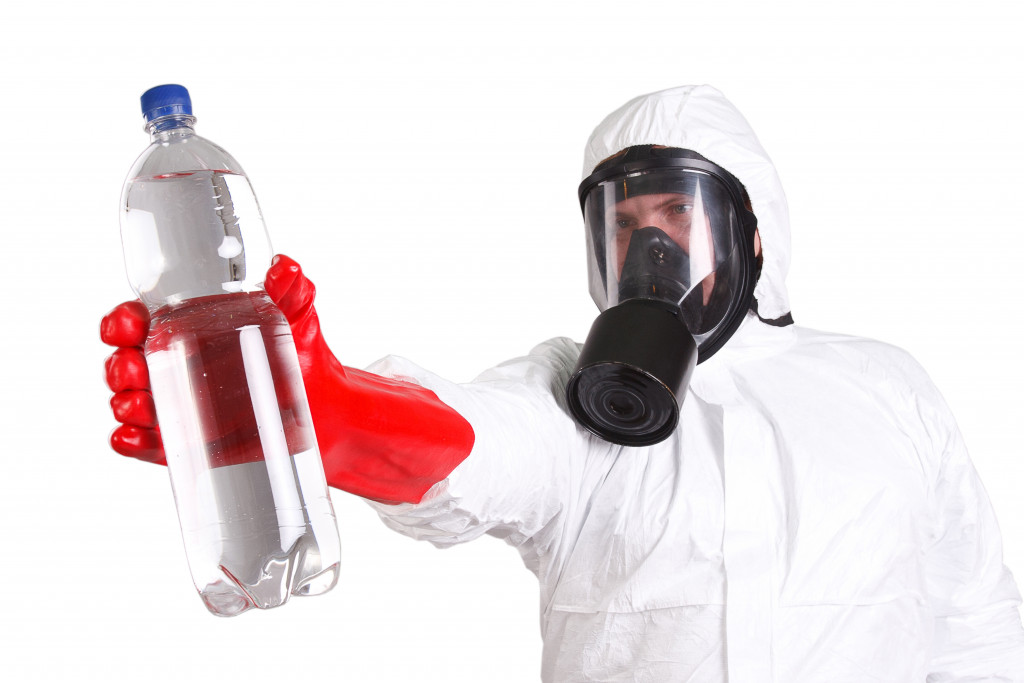Before COVID-19, pandemics were all but a thing of the past. We associated the term with Spanish influenza and bubonic plague. Even though SARS happened in the 21st century and became a pandemic, it didn’t blow up as COVID-19 did. At that time, some countries were able to stop the virus from crossing their borders.
But COVID-19 is on a whole different level and will definitely make history. The babies born in 2020 may one day be called the “COVID-19 Generation.” And now that we know how diseases can impact lives and decline economies, we must all take a step to ensure that nothing like this will happen again.
You may think the development and spread of viruses are out of your control, but it really isn’t. We have more power than we give ourselves credit for.
Think about it this way: Some diseases can start within a community. If a virus has affected you, the first people you’ll expose to it are the ones from your community. Once the virus also affects other people, it will start spreading faster until an outbreak occurs.
Hence, you can help prevent pandemics by working together with your community. But first, let’s understand how pandemics develop, and we’ll identify how to stop them as a community:
The Origin of Pandemics
Most viruses are carried by animals and will transmit to humans after contact. Bats are often the animals identified as the reservoir for deadly outbreaks since the Hendra virus in Australia. In the mid-1990s, bats were found to carry this virus, which they transmitted to horses and then to humans. In the following years, several new viruses emerged, including SARS-CoV-1, Ebola, Nipah virus, and SARS-CoV-2, a.k.a. COVID-19.
Bats became responsible for many outbreaks because of their vital role in the ecosystem. They help control the insect population, reseed logged forests, pollinate plants, and scatter guano to nourish the soil. They live in large colonies, with their numbers going up to the millions. If one bat contracts a virus, the other bats in the colony will also contract it. And when bats do their work, their excrement may get in contact with other animals, starting what would be an outbreak, or worse, a pandemic.
For COVID-19, specifically, the virus was first traced in a wet market in Wuhan, China. Bats are also named the natural reservoir of the virus, with the intermediary animal being the pangolin.

How Communities Can Help Prevent Outbreaks
1. Avoid Disturbing or Destroying the Natural Habitat of Animals
Part of the reason viruses spread to humans is deforestation. The more animal habitats we destroy, the closer animals get to human settlements. As such, they leave viruses in the places we gather, like public parks or our own backyards. Considering what we did to their habitats, it seems only just that we get viruses as a payback.
But of course, we can’t afford to get seriously ill, much less spread our disease. However, viruses will keep spreading if we don’t tackle the main source, which is deforestation and other ways we destroy animal habitats. Hence, let’s promote preserving our forests and waters. If you see a snake on your property, for instance, contact the government agency in charge of handling wildlife. As much as possible, avoid direct contact with wild animals.
2. Keep Pests Away from Your Property
Rodents and mosquitoes are two of the most dangerous common household pests. Mosquitoes are, in fact, the deadliest animal in the world. So if your community lies near a stagnant body of water, or its water source is a well, always apply insect repellent on your skin before going out. If the people in your neighborhood store their water supply in buckets, spread awareness that those filled buckets can be a breeding ground for mosquitoes. Promote a habit of covering buckets to stunt the mosquito population and, with it, the spread of mosquito-borne diseases.
You can also trap mosquitoes then send them away instead of killing them. After all, deadly as they are, they’re still a vital part of our ecosystem. Use a tiger mosquito attractant to lure and trap them. That way, they’ll keep out of your waters.
3. Follow Ordinances Regarding Health
Most importantly, set a good example to your community by following ordinances. These days, every community has placed strict health protocols due to the pandemic, so comply with them. We may be getting tired of observing health protocols already, but the virus won’t stop spreading if we’d disobey the rules.
Get vaccinated once the shots become available in your community. Share your experience on social media so that you can influence your neighbors to get immunized as well. And while you’re at it, spread information about the importance of vaccines. The more communities get their shots, the faster we can end the pandemic, and we may be able to prevent other viruses from affecting us, too.




